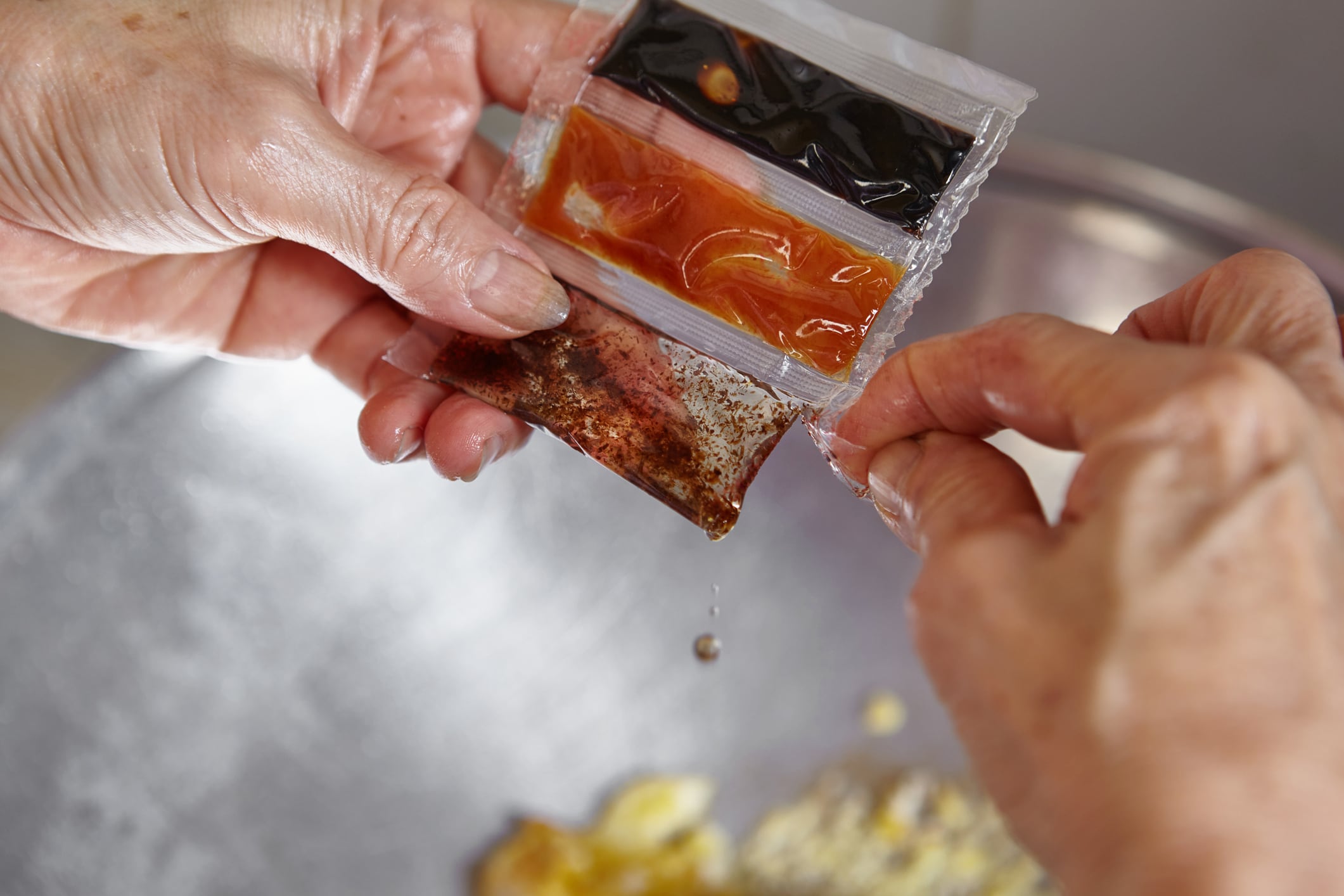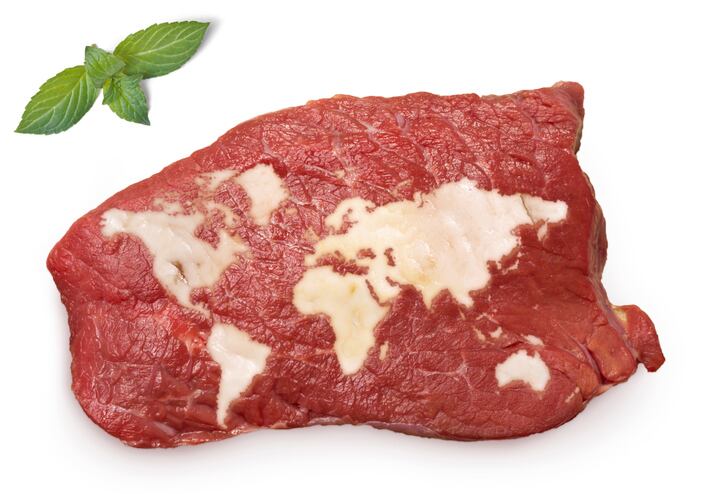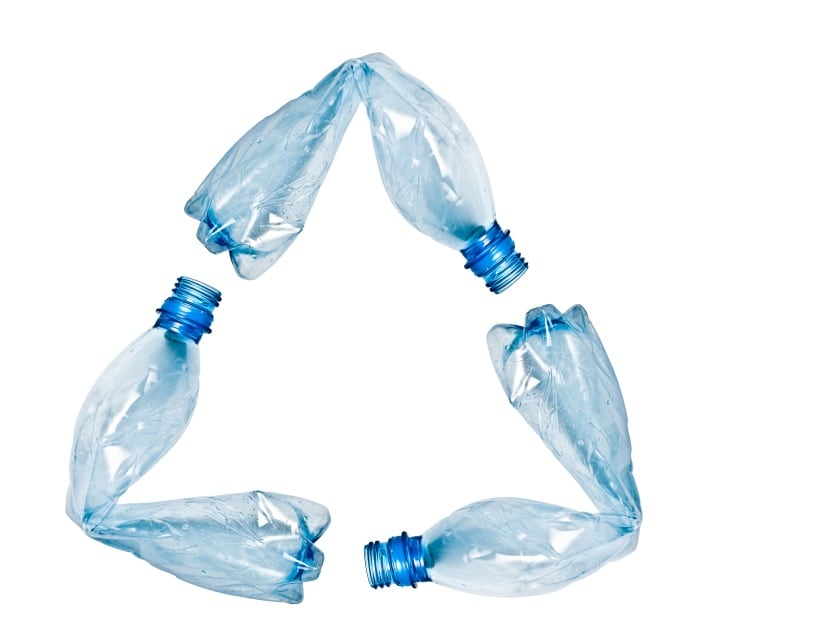A new campaign from A Plastic Planet has revealed that 855bn sachets are used every year globally by food and home care brands – enough to cover the entire surface of the Earth*.
The plastic sachets, used to package single doses of products such as ketchup, soy sauce, mustard and milk are ‘virtually never recycled’, said the group, and go on to pollute the oceans, air, soil and food chain. It estimates that without action the world is set to go through a trillion sachets by 2030.
Despite this, sachets have been almost entirely exempt from the broader crackdown on plastic, the campaigners wrote in an open letter sent to UK newspapers. Sachets are not covered by the EU single-use plastics directive, which will outlaw a host of throwaway items by 2021. The Environment Bill 2020 introduced to the UK Parliament earlier this month also fails to regulate sachets, it added.
Speaking at the launch of the #SackTheSachet campaign in London, co-founder of A Plastic Planet, Sian Sutherland said: “Industry is waking up to the plastic problem in general. However, one little item seems to have escaped everybody's attention: the plastic sachet. We became aware of the plastic sachet and the sheer volume that we are pumping out every single year.”
Speaking to FoodNavigator, she added: "We used to somehow survive with ketchup and vinegar in glass bottles, but we’ve become addicted to single serve stuff. For us, the symbolism of the sachet is everything because it is this ultimate grab and go convenience-addicted, health and safety madness that we've slipped into.”
David Azoulay, Environmental Health Program Director at the Centre for International Environmental Law, said the impact of plastic sachets on the environment and health, particularly in developing nations, was 'staggering and scary'.
"The US EPA has identified over 170 highly carcinogenic or toxic materials that are being used for the fracking of the natural gas that will then be turned into plastic sachets. Once those sachets become waste - which is immediately after they’ve been used - there's nothing that we can do.
“So what do we do? We send them around to countries who are unable to deal with the waste. We are effectively exporting the toxic impacts of our own consumption modes to those different counties. And in those countries, because there are no ways to deal with those sachets, they will end up in the environment and degrade in the water and the soil or they will be burnt, creating very dangerous toxins for the populations that are around.”
What are the potential solutions to solve sachet pollution?
Sutherland wants food and beverage companies to nudge consumers away from relying on sachets and to devise ways of not having to use single-serve sachets at all. Failing that, she called on industry to explore safer and more sustainable solutions.
"People buy what they are sold,” she stressed. “It's industry's job to sell them something different."
Iceland Food Managing Director Richard Walker is one of 50 business leaders calling for an end to the use of plastic sachets.
"I argue constantly with businessmen and women about whether plastic is better or not for the environment than many other forms of material," he said at the launch. “But I think we know the damage that frivolous, single use unrecyclable forms of plastic is doing such as sachets and I think it's everyone’s responsibility to make a stand and commit to do something about it."
Iceland, he explained, is working on a range of technologies, including unsleeving the sauces it would otherwise put in sachets in its frozen ready meals.
“We sell a 100 million ready meals a year. They used to come in black plastic trays. We’ve now converted those to FSC certified board trays. Some of those ready meals have sachets with sauce in them. We can do without those sachets in many instances because we are a frozen food retailer and our technologists have now developed a frozen block of sauce.”
The company is also exploring paper substrates as a potential solution. “Some of the technologies and solutions are not necessarily cutting-edge innovation... some of it is just harking back to what we used to do.”
Balancing environmental and business sustainability
But Walker warned that solutions often risked the sustainability of companies themselves. Iceland, for example, abandoned a single-store loose produce trial last year after it led to a 20% drop in sales.
“We tend to have a lower demographic customer base. Some of those customers might only have £25 a week to spend on food,” he explained. “It’s therefore essential we're not passing a penny in costs to them. It's essential that we try and create solutions that are genuinely scaleable.”
Iceland is now trialling cardboard paper-wrapped produce instead. “The reality is that convenience is key for many people,” said Walker.
Bella Lack, the youth patron of the Born Free Foundation, an international wildlife charity, agreed that developing new materials for single-serve sachets was a last resort. She said: "Some companies are thinking of using alternatives like seaweed or plant-based materials. I oppose that because whilst using technology and innovation is a solution, I think it's something we must do at the end. Before that we must think about mentality change and changing our consumer habits."
*Surface area of Earth = 510.1 million km2
Surface area of 855 billion sachets = 581.4 million km2
Unfolded sachet surface are = 8x8.5cm = 0.00068km2
0.00068km2 * 855 billion = 581,400,000 km2
Source: A Plastic Planet





